Described as a cross between a traditional book club and a university course without exams, this popular program is in-person and online for the 2022-23 season! This registration option is for the Wednesday and Thursday ONLINE subscription option.
A link will be sent to subscribers between 7:00 and 7:30 pm on the day of the lecture. The links to the lectures will be accessible from their launch date until August 31, 2023.
Other subscription options are available here: https://www.heliconianclub.org/about-the-2022-23-series.html
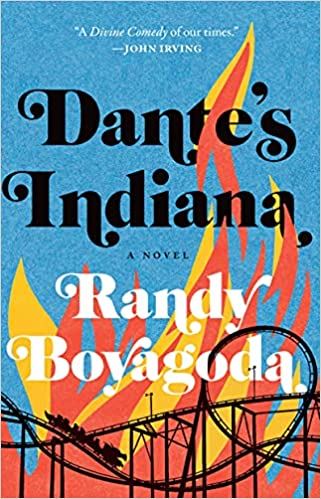
Dante’s Indiana is affecting and strange, intimate and big-hearted—an extraordinary journey through the darkly divine comedies of our time..
Middle-aged, married, but living on his own, Prin has lost his way. Desperate for money and purpose, he moves to small-town Indiana to work for an evangelical millionaire who’s building a theme park inspired by Dante’s Inferno. He quickly becomes involved in the difficult lives of his co-workers and in the wider struggles of their opioid-ravaged community while trying to reconcile with his distant wife and distant God. Both projects spin out of control, and when a Black teenager is killed, creationists, politicians and protesters alike descend. In the midst of this American chaos, Prin risks everything to help the lost and angry souls around him while searching for his own way home.
Suanne Kelman will lecture on Sea of Tranquility.
(We recommended that you read the prequel, The Glass Hotel.)
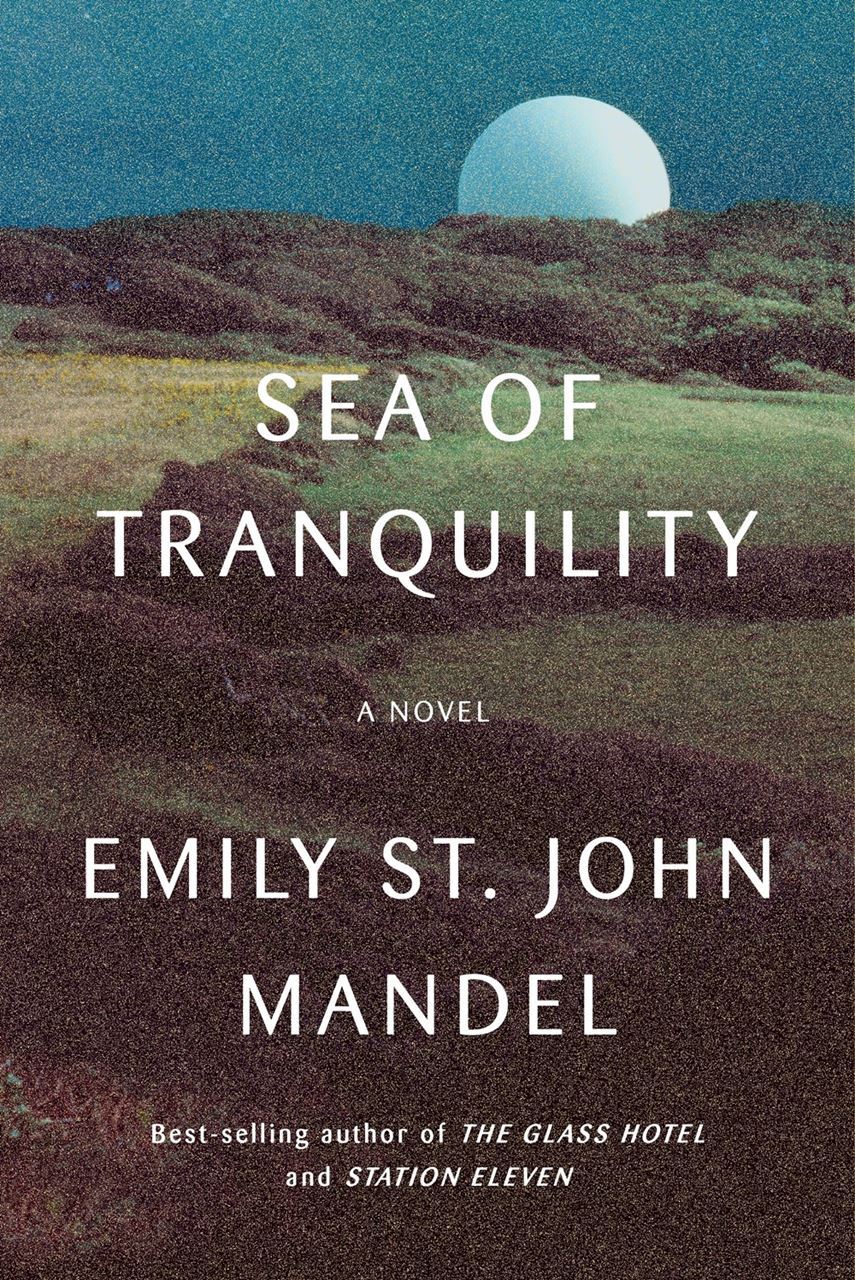 Edwin St. Andrew is eighteen years old when he crosses the Atlantic by steamship, exiled from polite society following an ill-conceived diatribe at a dinner party. He enters the forest, spellbound by the beauty of the Canadian wilderness, and suddenly hears the notes of a violin echoing in an airship terminal—an experience that shocks him to his core.
Edwin St. Andrew is eighteen years old when he crosses the Atlantic by steamship, exiled from polite society following an ill-conceived diatribe at a dinner party. He enters the forest, spellbound by the beauty of the Canadian wilderness, and suddenly hears the notes of a violin echoing in an airship terminal—an experience that shocks him to his core.
Two centuries later a famous writer named Olive Llewellyn is on a book tour. She’s traveling all over Earth, but her home is the second moon colony, a place of white stone, spired towers, and artificial beauty. Within the text of Olive’s best-selling pandemic novel lies a strange passage: a man plays his violin for change in the echoing corridor of an airship terminal as the trees of a forest rise around him.
When Gaspery-Jacques Roberts, a detective in the black-skied Night City, is hired to investigate an anomaly in the North American wilderness, he uncovers a series of lives upended: The exiled son of an earl driven to madness, a writer trapped far from home as a pandemic ravages Earth, and a childhood friend from the Night City who, like Gaspery himself, has glimpsed the chance to do something extraordinary that will disrupt the timeline of the universe.
A virtuoso performance that is as human and tender as it is intellectually playful, Sea of Tranquility is a novel of time travel and metaphysics that precisely captures the reality of our current moment.
 Amid all the anger and confusion surrounding the global refugee crisis, Omar El Akkad’s What Strange Paradise paints a portrait of displacement and belonging that is at once unflinching and tender. In examining the confluence of war, migration and a sense of settlement, it raises questions of indifference and powerlessness and, ultimately, offers clues as to how we might reach out empathetically in a divided world.
Amid all the anger and confusion surrounding the global refugee crisis, Omar El Akkad’s What Strange Paradise paints a portrait of displacement and belonging that is at once unflinching and tender. In examining the confluence of war, migration and a sense of settlement, it raises questions of indifference and powerlessness and, ultimately, offers clues as to how we might reach out empathetically in a divided world.
More bodies have washed up on the shores of a small island. Another overfilled, ill-equipped, dilapidated ship has sunk under the weight of its too many passengers: Syrians, Ethiopians, Egyptians, Lebanese, Palestinians, all of them desperate to escape untenable lives back in their homelands. But miraculously, someone has survived the passage: nine-year-old Amir, a Syrian boy who is soon rescued by Vanna. Vanna is a teenage girl, who, despite being native to the island, experiences her own sense of homelessness in a place and among people she has come to disdain. And though Vanna and Amir are complete strangers, though they don't speak a common language, Vanna is determined to do whatever it takes to save the boy.
In alternating chapters, we learn about Amir's life and how he came to be on the boat, and we follow him and the girl as they make their way toward safety. What Strange Paradise is the story of two children finding their way through a hostile world. But it is also a story of empathy and indifference, of hope and despair--and about the way each of those things can blind us to reality. Winner of the 2021 Scotiabank Giller prize.
OCTOBER 13 – LINDA RUI FENG: SWIMMING BACK TO TROUT RIVER
 Swimming Back to Trout River is set against the backdrop of China’s Cultural Revolution that follows a father’s quest to reunite his family before his precocious daughter’s momentous birthday. How many times in life can we start over without losing ourselves?
Swimming Back to Trout River is set against the backdrop of China’s Cultural Revolution that follows a father’s quest to reunite his family before his precocious daughter’s momentous birthday. How many times in life can we start over without losing ourselves?
In the summer of 1986 in a small Chinese village, ten-year-old Junie receives a momentous letter from her parents, who had left for America years ago: her father promises to return home and collect her by her twelfth birthday. But Junie’s growing determination to stay put in the idyllic countryside with her beloved grandparents threatens to derail her family’s shared future.
What Junie doesn’t know is that her parents, Momo and Cassia, are newly estranged from one another in their adopted country, each holding close private tragedies and histories from the tumultuous years of their youth during China’s Cultural Revolution. While Momo grapples anew with his deferred musical ambitions and dreams for Junie’s future in America, Cassia finally begins to wrestle with a shocking act of brutality from years ago. In order for Momo to fulfill his promise, he must make one last desperate attempt to reunite all three members of the family before Junie’s birthday—even if it means bringing painful family secrets to light. Longlisted for the 2021 Scotiabank Giller Prize
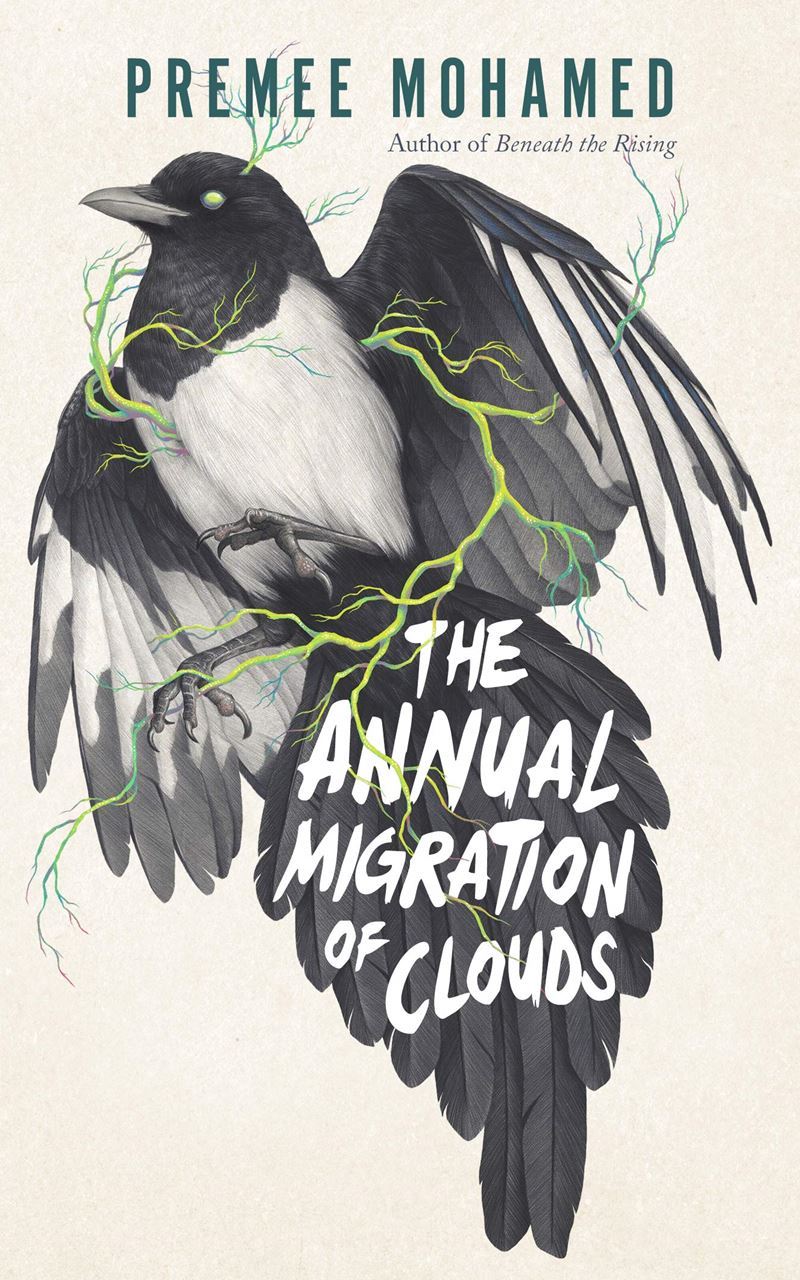 The world is nothing like it once was: climate disasters have wracked the continent, causing food shortages, ending industry, and leaving little behind. Then came Cad, mysterious mind-altering fungi that invade the bodies of the now scattered citizenry. Reid, a young woman who carries this parasite, has been given a chance to get away — to move to one of the last remnants of pre-disaster society — but she can’t bring herself to abandon her mother and the community that relies on her. When she’s offered a coveted place on a dangerous and profitable mission, she jumps at the opportunity to set her family up for life, but how can Reid ask people to put their trust in her when she can’t even trust her own mind.
The world is nothing like it once was: climate disasters have wracked the continent, causing food shortages, ending industry, and leaving little behind. Then came Cad, mysterious mind-altering fungi that invade the bodies of the now scattered citizenry. Reid, a young woman who carries this parasite, has been given a chance to get away — to move to one of the last remnants of pre-disaster society — but she can’t bring herself to abandon her mother and the community that relies on her. When she’s offered a coveted place on a dangerous and profitable mission, she jumps at the opportunity to set her family up for life, but how can Reid ask people to put their trust in her when she can’t even trust her own mind.
With keen insight and biting prose, Premee Mohamed delivers a deeply personal tale that reflects on the meaning of community and asks what we owe to those who have lifted us up.
NOVEMBER 17– KIM THUY: EM
 In the midst of war, an ordinary miracle: an abandoned baby tenderly cared for by a young boy living on the streets of Saigon. The boy is Louis, the child of a long-gone American soldier. Louis calls the baby em Hồng, em meaning "little sister," or "beloved." Even though her cradle is nothing more than a cardboard box, em Hồng's life holds every possibility.
In the midst of war, an ordinary miracle: an abandoned baby tenderly cared for by a young boy living on the streets of Saigon. The boy is Louis, the child of a long-gone American soldier. Louis calls the baby em Hồng, em meaning "little sister," or "beloved." Even though her cradle is nothing more than a cardboard box, em Hồng's life holds every possibility.
Through the linked destinies of a family of characters, the novel takes its inspiration from historical events, from Operation Babylift, which evacuated thousands of biracial orphans from Saigon in April 1975, to the remarkable growth of the nail salon industry, dominated by Vietnamese expatriates all over the world. From the rubber plantations of Indochina to the massacre at My Lai, Kim Thúy sifts through the layers of pain and trauma in stories we thought we knew, revealing transcendent moments of grace and the invincibility of the human spirit.
Kim Thúy's Em is a virtuosic novel of profound power and sensitivity, and an enduring affirmation of the greatest act of resistance: love.
 It is 1939, with the world on the brink of global war, when Constable Hotchkiss confronts the spoiled, narcissistic man-child Ernie Sickert about a rash of disturbing pranks in their small prairie town. Outraged and cornered, Ernie commits an act of unspeakable violence, setting in motion a course of events that will change forever the lives of all in his wake.
It is 1939, with the world on the brink of global war, when Constable Hotchkiss confronts the spoiled, narcissistic man-child Ernie Sickert about a rash of disturbing pranks in their small prairie town. Outraged and cornered, Ernie commits an act of unspeakable violence, setting in motion a course of events that will change forever the lives of all in his wake.
With Loretta Pipe—the scrappy twelve-year-old he idealizes as the love of his life—in tow, Ernie flees town. In close pursuit is Corporal Cooper, who enlists the aid of two brothers, veterans of World War One: Jack, a sensitive, spiritual man with a potential for brutal violence; and angry, impetuous Dill, still recovering from the premature death of his wife who, while on her deathbed, developed an inexplicable obsession with the then-teenaged Ernie Sickert.
When a powerful storm floods the prairie roads, wreaking havoc, Ernie and Loretta take shelter in a one-room schoolhouse where they are discovered by the newly arrived teacher, Vidalia Taggart. Vidalia has her own haunted past, one that has driven her to this stark and isolated place with only the journals of her lover Dov, recently killed in the Spanish Civil War, for company. Dill, arriving at the schoolhouse on Ernie's trail, falls hard and fast for Vidalia—but questions whether he can compete with the impossible ideal of a dead man.
Guy Vanderhaeghe, writing at the height of his celebrated powers, has crafted a tale of unrelenting suspense against a backdrop of great moral searching and depth. His is a canvas of lavish, indelible detail: of character, of landscape, of history—in all their searing beauty but all their ugliness, too.
JANUARY 19– LISA ROCHON: TUSCAN DAUGHTER
 Tuscan Daughter set during the Italian Renaissance and Beatrice, a young and defiant female artist, is searching for her mother.
Tuscan Daughter set during the Italian Renaissance and Beatrice, a young and defiant female artist, is searching for her mother.
Florence in 1500, is a city that glitters with wealth and artistic genius but it is also a place of fierce political intrigue, walled off from the unrest in the surrounding Tuscan countryside. In this moment, a peasant girl finds herself alone after her father is killed and her mother disappears. Young Beatrice must dare to enter the city to sell her family’s olive oil in order to survive, but also to search the streets and opium dens for her missing, grieving mother.
Walking barefoot from her outlying village, Beatrice is given grudging permission to pass through the city gates to sell olive oil to the artists—Michelangelo, Leonardo da Vinci, Botticelli—who toil to elevate the status of the Florentine Republic. Lonely yet defiant, the peasant girl draws on the stone walls of Florence in secret as a way to express her pain. While desperately searching the city for her mother, Beatrice befriends the upstart Michelangelo as he struggles to sculpt the David. She also comes to know a cloth merchant’s wife who is having her portrait painted by the aging Leonardo da Vinci, renowned through the land as Master of the Arts. Bonds deepen even while Michelangelo and Leonardo are pitted against each other.
Set during five epic years in the early 1500s when Florence was rebranding itself through its creative geniuses, Tuscan Daughter reveals the humanity and struggles of a young woman longing to find the only family she has left and be an artist in her own right, and the way she influences the artistic masters of the time to stake everything on the power of beauty to transform and heal.
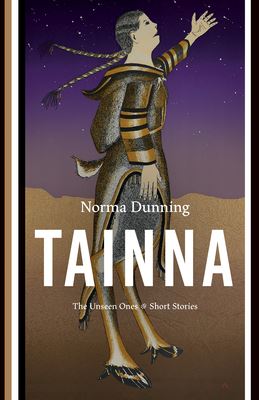 Drawing on both lived experience and cultural memory, Norma Dunning brings together six powerful new short stories centred on modern-day Inuk characters in Tainna. Ranging from homeless to extravagantly wealthy, from spiritual to jaded, young to elderly, and even from alive to deceased, Dunning’s characters are united by shared feelings of alienation, displacement and loneliness resulting from their experiences in southern Canada.
Drawing on both lived experience and cultural memory, Norma Dunning brings together six powerful new short stories centred on modern-day Inuk characters in Tainna. Ranging from homeless to extravagantly wealthy, from spiritual to jaded, young to elderly, and even from alive to deceased, Dunning’s characters are united by shared feelings of alienation, displacement and loneliness resulting from their experiences in southern Canada.
In Tainna—meaning “the unseen ones” and pronounced Da-e-nn-a—a fraught reunion between sisters Sila and Amak ends in an uneasy understanding. From the spirit realm, Chevy Bass watches over his imperilled grandson, Kunak. And in the title story, the broken-hearted Bunny wanders onto a golf course on a freezing night, when a flock of geese stand vigil until her body is discovered by a kind stranger.
Norma Dunning’s masterful storytelling uses humour and incisive detail to create compelling characters who discover themselves in a hostile land where prejudice, misogyny and inequity are most often found hidden in plain sight. There, they must rely on their wits, artistic talent, senses of humour and spirituality for survival; and there, too, they find solace in shining moments of reconnection with their families and communities. Winner of the 2021 Governor- General’s Prize for Fiction.
FEBRUARY 16 - DAMON GALGUT: THE PROMISE
Suanne Kelman will lecture on The Promise
 The Promise, winner of the 2021 Booker Prize, is a modern family saga. The novel charts the decline of a white family during South Africa’s transition out of apartheid. It begins in 1986, with the death of Rachel, a 40-year-old Jewish mother of three on a smallholding outside Pretoria. The drama of the novel turns on a promise that her Afrikaner husband, Manie, made to her before she died, overheard by their youngest daughter, Amor: that Manie would give their black maid, Salome, the deeds to the annexe she occupies. Now that Rachel is dead, Manie has apparently forgotten and doesn’t care to be reminded. Nor does his bigoted family, who regard Amor’s stubborn insistence that Salome should own her home as the kind of talk that “now appears to have infected the whole country”.
The Promise, winner of the 2021 Booker Prize, is a modern family saga. The novel charts the decline of a white family during South Africa’s transition out of apartheid. It begins in 1986, with the death of Rachel, a 40-year-old Jewish mother of three on a smallholding outside Pretoria. The drama of the novel turns on a promise that her Afrikaner husband, Manie, made to her before she died, overheard by their youngest daughter, Amor: that Manie would give their black maid, Salome, the deeds to the annexe she occupies. Now that Rachel is dead, Manie has apparently forgotten and doesn’t care to be reminded. Nor does his bigoted family, who regard Amor’s stubborn insistence that Salome should own her home as the kind of talk that “now appears to have infected the whole country”.
Manie’s failure to keep his word falls like a curse as we follow his children down the decades. Four sections, set at roughly 10-year intervals, from Botha to Zuma via the 1995 Rugby World Cup and Mbeki’s inauguration, are each named after a family member who will die; even once you’ve twigged the significance of the section titles, Galgut steals the breath with his willingness to fell his characters so randomly. Amor’s bulimic sister, Astrid, unhappily married with twins, becomes a social climber who, lured by proximity to power, cheats on two husbands; their older brother, Anton, lives in the shadow of an unrecognised crime committed while a teenage conscript deployed against black protesters during the violence of the 1980s. Winner of he 2021 Booker Prize.
 The lives of two Nigerian women divided by class and social inequality intersect when they're kidnapped, held captive, and forced to await their fate together.
The lives of two Nigerian women divided by class and social inequality intersect when they're kidnapped, held captive, and forced to await their fate together.
In the Nigerian city of Enugu, young Nwabulu, a housemaid since the age of ten, dreams of becoming a typist as she endures her employers’ endless chores. She is tall and beautiful and in love with a rich man’s son.
Educated and privileged, Julie is a modern woman. Living on her own, she is happy to collect the gold jewellery lovestruck Eugene brings her, but has no intention of becoming his second wife.
When a kidnapping forces Nwabulu and Julie into a dank room years later, the two women relate the stories of their lives as they await their fate.
Pulsing with vitality and intense human drama, Cheluchi Onyemelukwe-Onuobia’s debut is set against four decades of vibrant Nigeria, celebrating the resilience of women as they navigate and transform what remains a man’s world. Shortlisted for the 2021 Scotiabank Giller Prize.
MARCH 16 - JOANNA GOODMAN: THE FORGOTTEN DAUGHTER
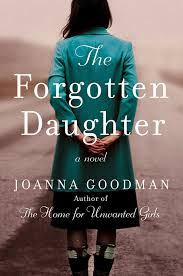 The Forgotten Daughter begins in 1992: French-Canadian factions renew Quebec’s fight to gain independence, and wild, beautiful Véronique Fortin, daughter of a radical separatist convicted of kidnapping and murdering a prominent politician in 1970, has embraced her father’s cause. So it is a surprise when she falls for James Phénix, a journalist of French-Canadian heritage who opposes Quebec separatism. Their love affair is as passionate as it is turbulent, as they negotiate a constant struggle between love and morals.
The Forgotten Daughter begins in 1992: French-Canadian factions renew Quebec’s fight to gain independence, and wild, beautiful Véronique Fortin, daughter of a radical separatist convicted of kidnapping and murdering a prominent politician in 1970, has embraced her father’s cause. So it is a surprise when she falls for James Phénix, a journalist of French-Canadian heritage who opposes Quebec separatism. Their love affair is as passionate as it is turbulent, as they negotiate a constant struggle between love and morals.
At the same time, James’s older sister, Elodie Phénix, one of the Duplessis Orphans, becomes involved with a coalition demanding justice and reparations for their suffering in the 1950s when Quebec’s orphanages were converted to mental hospitals, a heinous political act of Premier Maurice Duplessis which affected 5,000 children.
Véronique is the only person Elodie can rely on as she fights for retribution, reliving her trauma, while Elodie becomes a sisterly presence for Véronique, who continues to struggle with her family’s legacy.
The Forgotten Daughter is a moving portrait of true love, familial bonds, and persistence in the face of injustice. As each character is pushed to their moral brink, they will discover exactly which lines they’ll cross—and just how far they’ll go for what they believe in.
 Born and raised on a remote British Columbia commune, Astra Brine has long struggled to find her way in the world, her life becoming a study of the thin line between dependence and love, need and desire. Over the years, as her path intersects with others—sometimes briefly, but always intensely—she will encounter people who, by turns, want to rescue, control, become, and escape her, revealing difficult yet shining truths about who they are and what they yearn for.
Born and raised on a remote British Columbia commune, Astra Brine has long struggled to find her way in the world, her life becoming a study of the thin line between dependence and love, need and desire. Over the years, as her path intersects with others—sometimes briefly, but always intensely—she will encounter people who, by turns, want to rescue, control, become, and escape her, revealing difficult yet shining truths about who they are and what they yearn for.
There is the childhood playmate who comes to fear Astra’s unpredictable ways. The stranger who rescues her from homelessness, and then has to wrestle with his own demons. The mother who hires Astra as a live-in nanny even as her own marriage goes off the rails.
The man who takes a leap of faith and marries her.
Even as Astra herself remains the elusive yet compelling axis around which these narratives turn, her story reminds us of the profound impact that a woman can have on those around her, and the power struggles at play in all our relationships, no matter how intimate. A beautifully constructed and revelatory novel, Astra explores what we’re willing to give and receive from others, and how well we ever really know the people we love the most. Long listed for the 2021 Scotiabank Giller Prize.
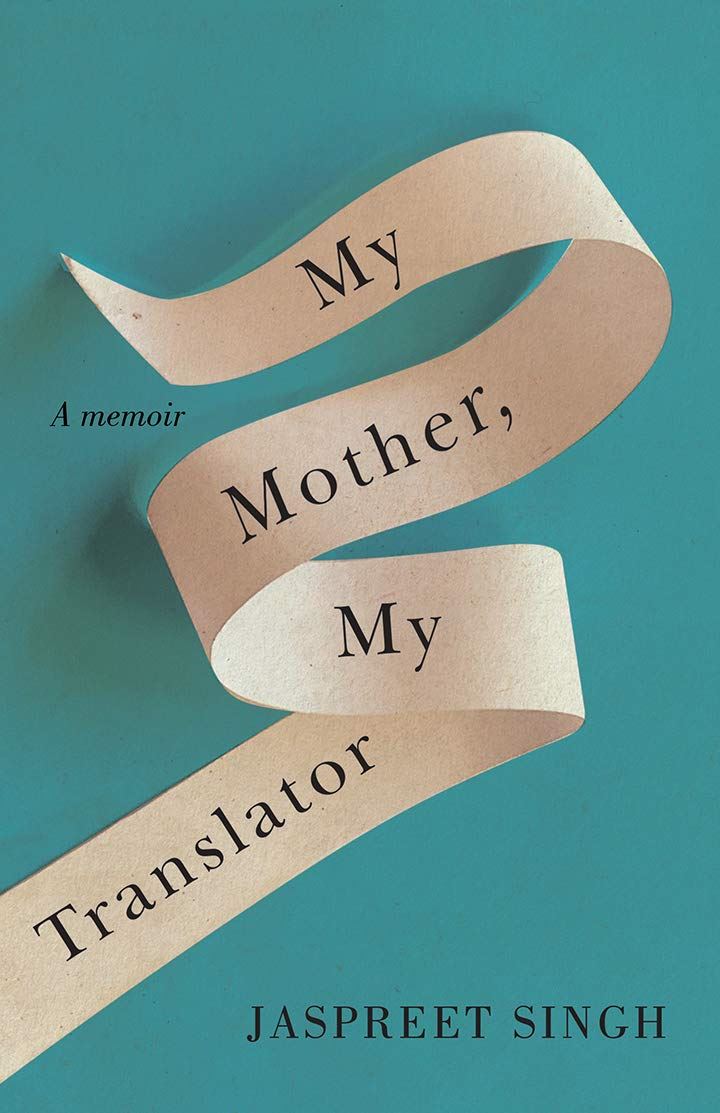 In 2008, Jaspreet Singh made a pact with his mother. He would gladly give her the go-ahead to publish her significantly altered translation of a story from his collection, Seventeen Tomatoes, if she promised to write her memoirs. After she died in 2012, he decided to take up the memoir she had started. My Mother, My Translator is a deeply personal exploration of a complex relationship. It is a family history, a work of mourning, a meditation on storytelling and silences, and a reckoning with trauma—the inherited trauma of the 1947 Partition of India and the direct trauma of the November 1984 anti-Sikh violence Singh experienced as a teenager.
In 2008, Jaspreet Singh made a pact with his mother. He would gladly give her the go-ahead to publish her significantly altered translation of a story from his collection, Seventeen Tomatoes, if she promised to write her memoirs. After she died in 2012, he decided to take up the memoir she had started. My Mother, My Translator is a deeply personal exploration of a complex relationship. It is a family history, a work of mourning, a meditation on storytelling and silences, and a reckoning with trauma—the inherited trauma of the 1947 Partition of India and the direct trauma of the November 1984 anti-Sikh violence Singh experienced as a teenager.
Tracing the men and especially the women of his family from the 1918 pandemic through the calamitous events of Partition, My Mother, My Translator takes us through Singh’s childhood in Kashmir and with his grandparents in Indian Punjab to his arrival in Canada in 1990 to study the sciences, up to the closing moments of 2020, as he tries to locate new forms of stories for living in a present marked by COVID-19 and climate crisis.
MAY 25 – DONNA MORRISSEY: PLUCK: A MEMOIR OF A NEWFOUNDLAND CHILDHOOD AND THE RAUCOUS, TERRIBLE, AMAZING JOURNEY TO BECOMING A NOVELIST
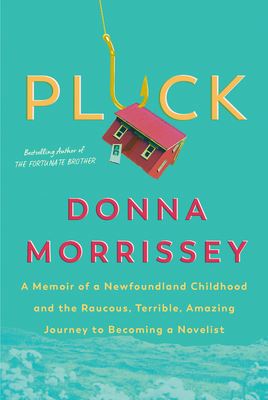 When Donna Morrissey left the only home she had ever known, an isolated Newfoundland settlement, at age 16, she was ready for adventure. She had grown up without television or telephones but had absorbed the tragic stories and comic yarns of her close-knit family and community. The death of her infant brother marked the family, and years later, Morrissey suffers devastating guilt about the accidental death of her teenage brother, whom she'd enticed to join her in the oilfields.
When Donna Morrissey left the only home she had ever known, an isolated Newfoundland settlement, at age 16, she was ready for adventure. She had grown up without television or telephones but had absorbed the tragic stories and comic yarns of her close-knit family and community. The death of her infant brother marked the family, and years later, Morrissey suffers devastating guilt about the accidental death of her teenage brother, whom she'd enticed to join her in the oilfields.
In another writer's hands, Morrissey's account of her personal story could easily be a tragedy. Instead, she combines darkness and light, levity and sadness into her tale, as her indomitable spirit and humour sustain her. Morrissey's path takes her from the drudgery of being a grocery clerk to western oilfields, to marriage and divorce and working in a fish-processing plant to support herself and her two young children. Throughout her struggles, she nourishes a love of learning and language.
Morrissey layers her account of her life with stories of those who came before her, a breed rarely seen in the modern world. It centers around iron-willed women: mothers and daughters, wives, sisters, teachers and mentors who find the support, the wind for their wings, outside the bounds given to them by nature. And it is a mysterious older woman she meets in Halifax who eventually unleashes the writer that Morrissey is destined to become.
An inspiring and insightful memoir, Pluck illustrates that even when you find yourself unravelling, you can find a way to spin the yarns that will save you--and delight readers everywhere.
JUNE 15 – NITA PROSE: THE MAID
 “I am your maid. I know so much about you. But when it comes down to it: what is it that you know about me?”
“I am your maid. I know so much about you. But when it comes down to it: what is it that you know about me?”
Molly Gray is not like everyone else. She struggles with social skills and misinterprets the intentions of others. Her gran used to interpret the world for her, codifying it into simple rules that Molly could live by.
Since Gran died a few months ago, twenty-five-year-old Molly has had to navigate life’s complexities all by herself. No matter—she throws herself with gusto into her work as a hotel maid. Her unique character, along with her obsessive love of cleaning and proper etiquette, make her an ideal fit for the job. She delights in donning her crisp uniform each morning, stocking her cart with miniature soaps and bottles, and returning guest rooms at the Regency Grand Hotel to a state of perfection.
But Molly’s orderly life is turned on its head the day she enters the suite of the infamous and wealthy Charles Black, only to find it in a state of disarray and Mr. Black himself very dead in his bed. Before she knows what’s happening, Molly’s unusual demeanour has the police targeting her as their lead suspect. She quickly finds herself caught in a web of deception, one she has no idea how to untangle. Fortunately for Molly, friends she never knew she had unite with her in a search for clues to what really happened to Mr. Black—but will they be able to find the real killer before it’s too late?
A Clue-like, locked-room mystery and a heart warming journey of the spirit, The Maid explores what it means to be the same as everyone else and yet entirely different—and reveals that all mysteries can be solved through connection to the human heart.